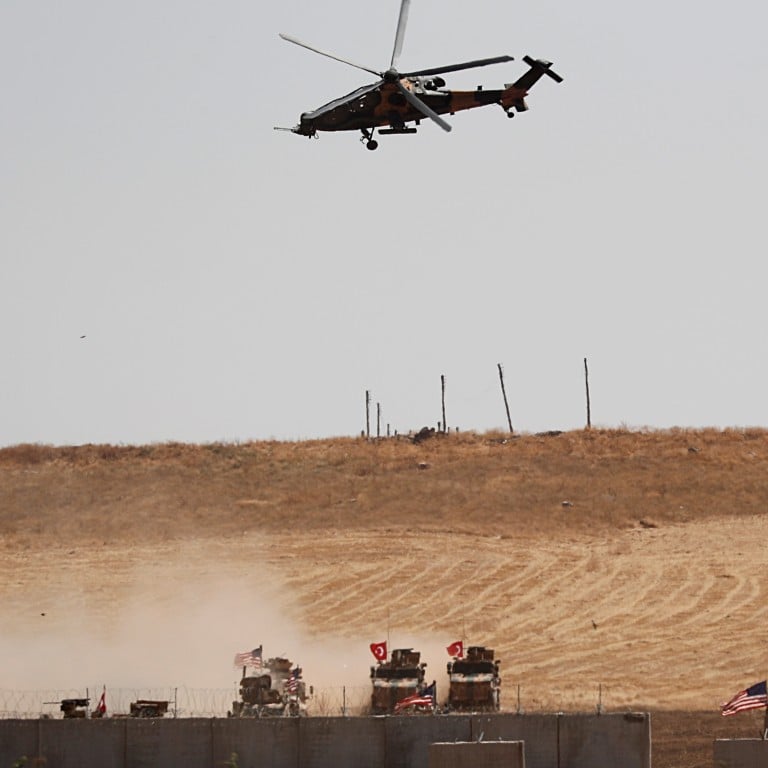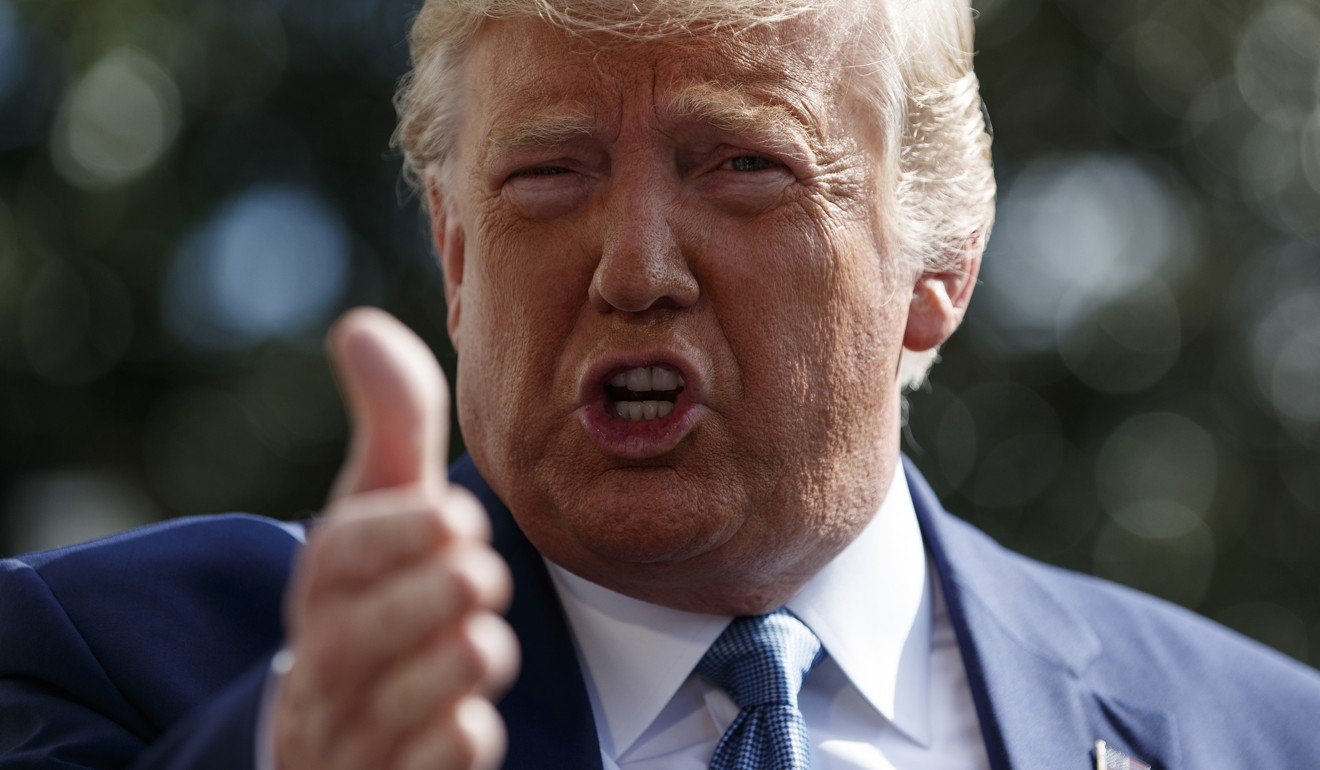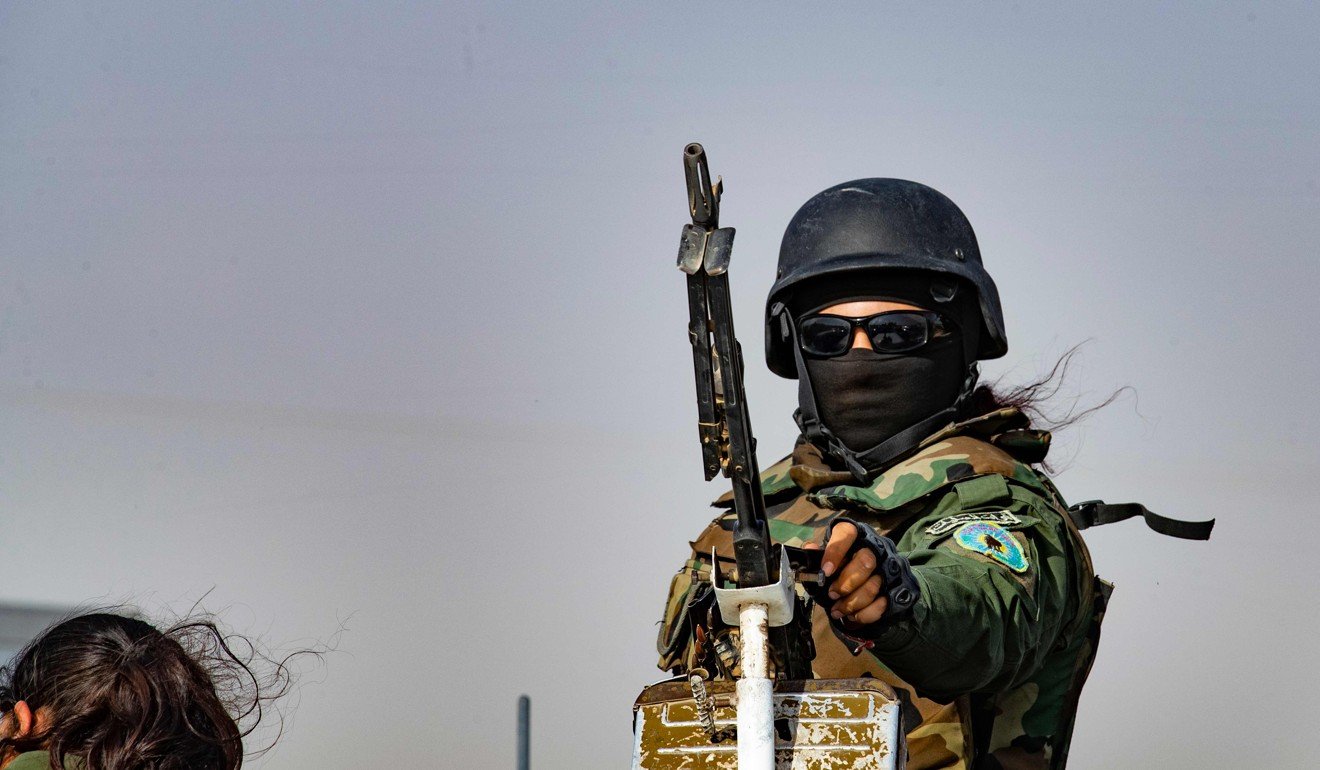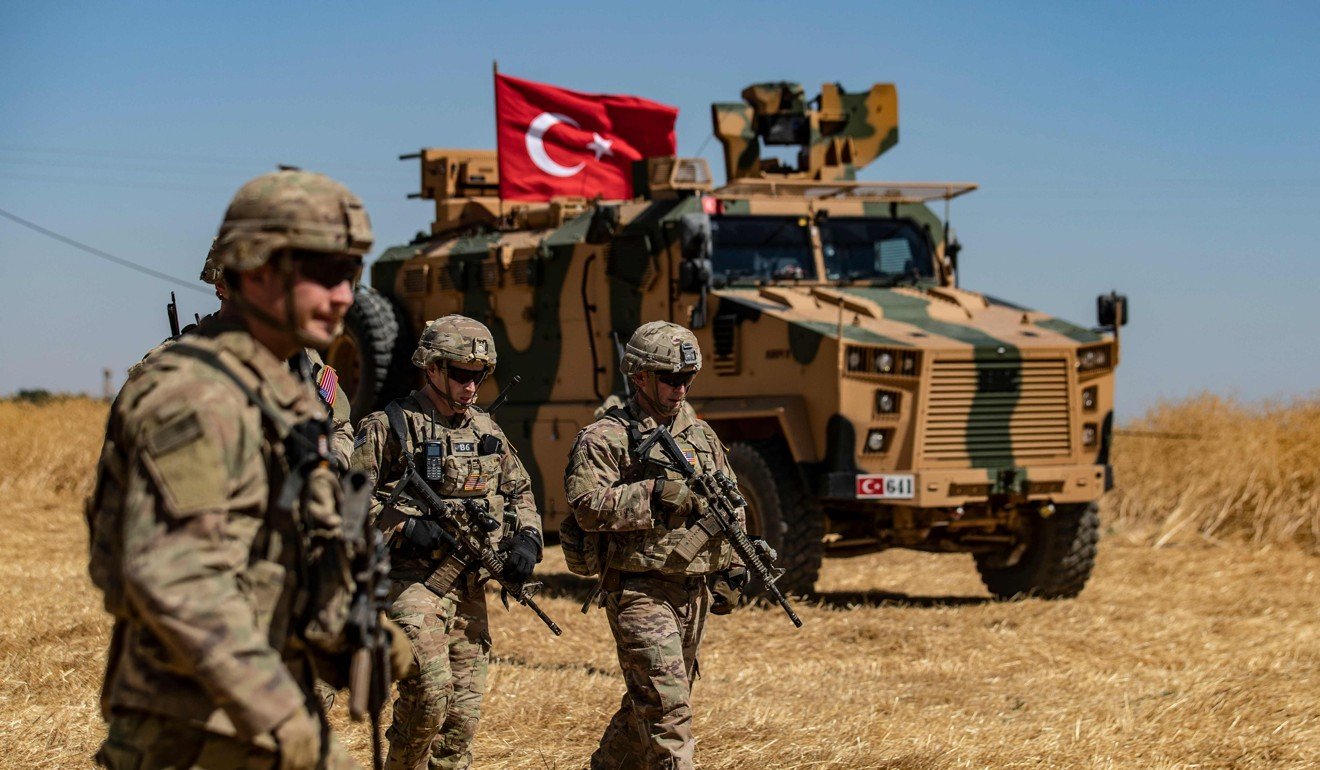
Donald Trump threatens to ‘totally destroy and obliterate’ Turkey’s economy over Syria assault
- Trump’s extraordinary Twitter warning against Nato ally Turkey came just after the White House announced a US military drawdown in Turkish-Syrian border areas
- That decision appeared to give Turkey a green light to attack its long-time Kurdish foes who have been fighting alongside US forces against Isis
US Donald Trump appeared to back-pedal after giving Turkey a green light to attack US-allied Kurdish forces in northern Syria, warning Ankara in a tweet that he would “totally destroy and obliterate” the country’s economy if it takes unspecified “off limits” actions.
“If Turkey does anything that I, in my great and unmatched wisdom, consider to be off limits, I will totally destroy and obliterate the Economy of Turkey (I’ve done before!),” he wrote on Twitter.
The president drew fierce criticism Monday from congressional allies for a White House statement the previous night that the US wouldn’t stand in the way of a Turkish incursion into Syria.
Senator Lindsey Graham, a South Carolina Republican who is normally a close Trump ally, said he would introduce bipartisan legislation to sanction Turkey if it invades Syria and suspend it from Nato if it attacks the Kurdish-led forces. He said Trump’s stance risks a comeback by Islamic State.
“Isis is not defeated, my friend. The biggest lie being told by the administration is that Isis is defeated,” Graham told Fox and Friends in a phone call on Monday. “The caliphate is destroyed, but there’s thousands of fighters [still there].”

In one of his multiple tweets on Monday, Trump said that Turkey must “watch over” some 12,000 captured Islamic State fighters and tens of thousands of their family members living in jails and camps in Kurdish-held territory.
Trump’s latest statements cast US policy in Syria into further confusion. Spokesmen at the White House and State Department haven’t elaborated on the Sunday statement or Trump’s subsequent tweets.
The Pentagon said the United States does not endorse a threatened Turkish military invasion of northern Syria, and cautioned that such a move risked destabilising the region.
US Defence Secretary Mark Esper and Joint Chiefs Chairman Mark Milley told their counterparts in Ankara that “unilateral action creates risks for Turkey,” Pentagon spokesman Jonathan Hoffman said in a statement.
“The Department of Defence made clear to Turkey – as did the president – that we do not endorse a Turkish operation in Northern Syria,” he added.

The Kurdish-led Syrian Democratic Forces have been a close US ally in the fight to defeat Isis. But Turkey considers Syria’s Kurdish militants terrorists, and Erdogan has said his forces were ready to begin a military operation against them in northeastern Syria imminently.
Trump sought to abruptly withdraw US forces from Syria late last year, also after a call with Erdogan. Former defence secretary James Mattis resigned in December after Trump’s Syria decision. The president relented and agreed to leave a small troop presence in the country after pressure from advisers including Graham.
Judge orders Trump to produce tax returns for hush-money probe
An adviser to the Syrian Democratic Forces said that Trump’s move would strengthen Syrian President Bashar al-Assad and his allies Iran and Russia.
“The Kurds told me this morning they were going to fight,” Moti Kahana, an adviser to the Kurdish-led forces, said by telephone from New Jersey.
“They have two options. They can partner with Iran and Assad in order to prevent Turkish intervention into Syria or face a fight against Turkey in the northern border area and with Iran” in the southeast.
Even if the Kurds don’t fight, Kahana said, “they will shift their alliance from the Americans” to Russia, Assad and Iran.
Iran’s Foreign Minister Mohammad Javad Zarif said in a tweet that the US was “an irrelevant occupier in Syria” and it’s “futile to seek its permission or rely on it for security”.

In a briefing with reporters on Monday, two State Department officials said only about two dozen American soldiers from two outposts had actually been pulled back, and only a small distance. The US opposition to Turkey’s plan to attack northeast Syria was undiminished, they said.
The officials, who asked not to be identified discussing private deliberations, said Erdogan announced his plan to move into Syria at the end of his Sunday phone call with Trump and sought US support.
They maintained that Trump restated his opposition but ordered troops moved back for two reasons: to get them out of harm’s way if an attack takes place and to make sure their presence didn’t signal tacit support for Turkey’s action.
The two officials said the US still wasn’t planning on relinquishing its control of northeast Syrian air space and there hadn’t been any decision about a broader withdrawal of US forces.
Vladimir Putin pitches Su-57 stealth jets to Turkish leader amid rift with US
Some Trump allies welcomed his change in position on Monday.
“It is not in our national interest to have a small US force in the middle of a long-running dispute between our Nato ally Turkey and various Kurdish groups in Syria,” William Ruger, vice-president for research and policy at the Charles Koch Institute, said in a statement.
Earlier Monday, Trump doubled down on his decision to withdraw US troops from military engagements after his administration announced ending engagements in northeastern Syria.
“I was elected on getting out of these ridiculous endless wars, where our great Military functions as a policing operation to the benefit of people who don’t even like the USA.
The two most unhappy countries at this move are Russia & China, because they love seeing us bogged down, watching over a quagmire, & spending big dollars to do so,” Trump wrote in a post on Twitter.
Additional reporting by Reuters and Agence France-Presse

